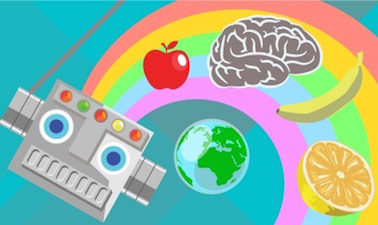Access on MITx Online
This course is currently available on MITx Online with Certificate enrollment open.
About
this course
What is the relationship between the mind and the body? Can computers think? Do we perceive reality as it is? Can there be a science of consciousness?
This course explores these questions and others. It is a thorough, rigorous introduction to contemporary philosophy of mind.
According to many scientists and philosophers, explaining the nature of consciousness is the deepest intellectual challenge of all. If you find consciousness at all puzzling, this is a great place to start learning more.
What you'll learn
- The basics of argumentation
- Some central arguments for and against the view that a sufficiently powerful computer can think (AI)
- The main theories of mental states and their relations to physical state
- Some central arguments for and against the view that the world is not as we perceive it to be
- What the "hard problem of consciousness"
Syllabus
Overview. This class is an introduction to philosophy of mind. Here are some of the questions we’ll
be thinking about:
- Are you an “immaterial soul”, distinct from your brain and body?
- Alternatively, are you simply a material or physical animal, living in an entirely physical world?
- If we (somehow) made a brain that was a perfect molecule-for-molecule replica of your brain,
and (somehow) kept it alive in a tank, would the tank-creature have the same mental life as you?
- Do we see ordinary physical objects like lemons and iPhones? And assuming that we do see them at all, do we see them as they really are?
- Can consciousness be given a scientific explanation?
Schedule
Part 1 – Minds and Computers
Lecture 1: Introduction
Lecture 2: The Chinese Room
Lecture 3: The Chinese Room, Continued; Arguments
Lecture 4: The Chinese Room, Continued
Lecture 5: Turing Machines and the Turing Test
Lecture 6: The Turing Test
Assessment 1: First Argument Analysis (10%)
Part 2 – From Dualism to Functionalism
Lecture 7: Dualism
Lecture 8: Dualism, Continued
Lecture 9: Behaviorism
Lecture 10: The Identity Theory
Lecture 11: The Identity Theory, Continued
Lecture 12: Kripke’s Objection
Lecture 13: Functionalism
Lecture 14: Functionalism, Continued
Assessment 2: Midterm Exam (30%)
Part 3 – Minds and Brains
Lecture 15: Knowledge
Lecture 16: Belief
Lecture 17: Belief, Continued
Part 4 – Perception
Lecture 18: Perception
Lecture 19: The Argument from Illusion, and Color Perception
Lecture 20: Color
Assessment 3: Second Argument Analysis (10%)
Part 5 – Consciousness
Lecture 21: Color, Continued; Nagel on Bats
Lecture 22: Nagel on Bats, Continued; the Knowledge Argument
Lecture 23: The Knowledge Argument, Continued; Chalmers’ Dualism
Lecture 24: Chalmers’ Dualism, Continued; Tye on Transparency
Lecture 25: Consciousness Wrap-Up
Assessment 4: Final Exam (50%)
Meet your instructors
Alex Byrne
Chair of the Department of Linguistics and Philosophy
Massachusetts Institute of Technology
Cosmo Grant
Digital Learning Lab Fellow
Massachusetts Institute of Technology



